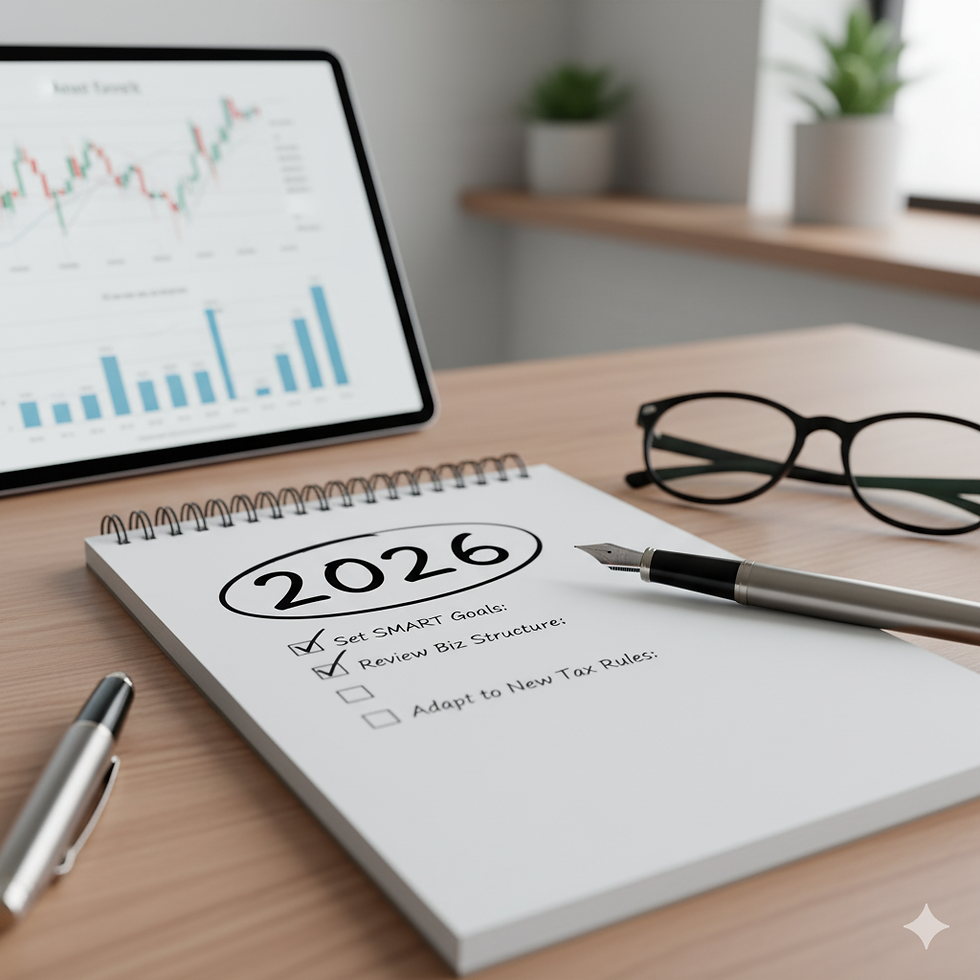Using Technology to Automate Accounting Processes
- Mary Davis

- Oct 3, 2023
- 3 min read

Accounting is an essential function in any business, as it involves the recording, analyzing, and reporting of financial transactions. Traditionally, this has been a manual and time-consuming process, requiring accountants to meticulously enter data, reconcile accounts, and prepare financial statements. However, with the advent of technology, businesses can now automate many of these accounting processes, saving time, reducing errors, and improving overall efficiency.
One of the most significant advancements in accounting technology is the development of accounting software. These software solutions, such as QuickBooks, Xero, and Sage, provide businesses with a user-friendly interface to record transactions, generate invoices, and manage accounts payable and receivable. By automating these tasks, businesses can streamline their accounting processes, reducing the need for manual data entry and minimizing the risk of errors.
Accounting software also enables businesses to automate the reconciliation of bank and credit card statements. Instead of manually comparing transactions, the software can import these statements and automatically match them with recorded transactions. This not only saves time but also improves accuracy, as the software can identify discrepancies and flag potential errors or fraudulent activities.
In addition to accounting software, businesses can leverage technology to automate the collection and processing of financial data. For instance, electronic data interchange (EDI) allows businesses to exchange financial information, such as invoices and purchase orders, electronically with their suppliers and customers. This eliminates the need for manual data entry and reduces the risk of errors associated with manual processing.
Another technology that can automate accounting processes is optical character recognition (OCR). OCR technology can scan and extract data from physical documents, such as receipts and invoices, and convert it into a digital format. This eliminates the need for manual data entry and speeds up the processing of financial documents. OCR technology can also be integrated with accounting software, allowing for seamless data transfer and further automation of accounting processes.
Furthermore, technology can automate the generation of financial reports and statements. With accounting software, businesses can generate standard financial reports, such as balance sheets and income statements, with just a few clicks. These reports can be customized to meet specific business needs, providing valuable insights into the financial health of the organization. Automation of financial reporting not only saves time but also reduces the risk of errors associated with manual preparation.
Another area where technology can automate accounting processes is in the management of payroll. Payroll software can automate the calculation and processing of employee salaries, taxes, and deductions. It can also generate electronic pay slips and facilitate direct deposit, eliminating the need for paper-based processes. By automating payroll, businesses can ensure accuracy, timeliness, and compliance with tax regulations.
Technology can enable businesses to automate the tracking and management of expenses. Expense management software allows employees to submit expense reports digitally, eliminating the need for paper receipts and manual calculations. The software can also automate the approval process, ensuring compliance with company policies and reducing the administrative burden on managers. Automation of expense management not only saves time but also improves accuracy and transparency in financial reporting.
In addition to these specific applications, businesses can also leverage cloud computing to automate their accounting processes. Cloud-based accounting software allows businesses to access their financial data from anywhere, at any time, and on any device. This eliminates the need for physical storage of financial documents and facilitates collaboration among multiple users. Cloud computing also ensures data security and backup, reducing the risk of data loss or theft.
Technology has revolutionized the accounting profession by automating many of the manual and time-consuming processes. Accounting software, OCR technology, EDI, payroll software, and cloud computing are just a few examples of how technology can be used to automate accounting processes. By embracing these technological advancements, businesses can save time, reduce errors, and improve overall efficiency in their accounting operations. As technology continues to evolve, the potential for automation in accounting processes will only continue to grow, enabling businesses to focus on strategic financial decision-making rather than mundane administrative tasks.
If you would like to discuss how I can help you with your Quickbooks Online bookkeeping, please feel free to contact me at the link below.







Comments